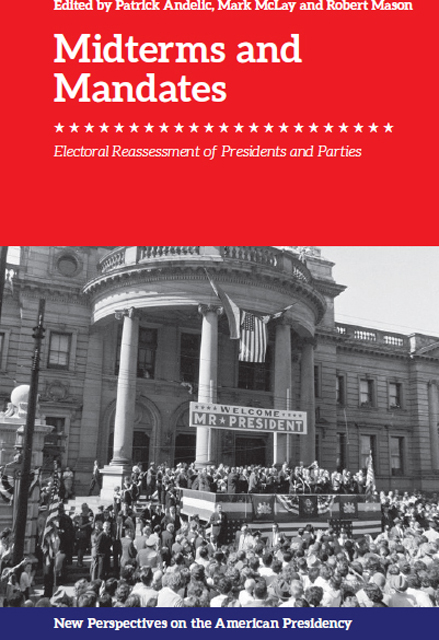Book contents
- Frontmatter
- Contents
- List of Figures and Tables
- Acknowledgements
- Notes on Contributors
- Preface: Why Midterms Matter
- Introduction: Midterms and Mandates, Presidents and Parties
- Part One Midterm Elections in Institutional Context
- Part Two Testing the New Deal Coalition
- Part Three The Republican Resurgence
- Index
Introduction: Midterms and Mandates, Presidents and Parties
Published online by Cambridge University Press: 07 June 2023
- Frontmatter
- Contents
- List of Figures and Tables
- Acknowledgements
- Notes on Contributors
- Preface: Why Midterms Matter
- Introduction: Midterms and Mandates, Presidents and Parties
- Part One Midterm Elections in Institutional Context
- Part Two Testing the New Deal Coalition
- Part Three The Republican Resurgence
- Index
Summary
During the first century or so of US history, midterm elections were known simply as ‘elections’. They were not considered part of the rhythm of the presidential cycle, a barometer of public confidence in the president or their party. That changed over the course of the twentieth century. Where once midterms were relatively marginal and localised, they have become nationalised – that trend has mirrored both the development of the modern presidency and the professionalisation of political parties. Now they are a regular feature of America’s political calendar – relatively unusual by international comparison – and one that is inextricably intertwined with the fate of the president in office. Even the collective name – ‘midterm’ – prioritises the relationship with the president. For the incumbents on the ballot, those elections represent the end of their terms, an opportunity for the public to pass judgement on whether they should continue in office or who their successors should be.
‘Midterms’ collectively refers to the hundreds of elections that take place on the Tuesday after the first Monday in November, two years following the most recent presidential election. They elect all 435 members of the House of Representatives and approximately one-third of the Senate (thirty-three or thirty-four senators in our day), as well as governorships, state legislatures, mayoralties and city councils, plus ballot initiatives and referendums. To discern, in those hundreds of events, clear trends or clean patterns is sometimes a fool’s errand. National events jostle with local concerns, candidate effects and other factors to produce a multitude of outcomes. To paraphrase Bill Clinton, if the people speak through every election, it is not always clear what they have said.
Midterm elections, according to Andrew E. Busch, ‘have traditionally been the poor stepchild of American electoral studies in many respects’. This collection brings together historians and political scientists to reflect on midterms on their own terms and in relationship with the presidency. The essays here focus principally on congressional elections (House of Representatives and Senate) and their relationship with the presidency. Perhaps even more so than presidential elections, midterms can provide insights into the relationship between the White House and Capitol Hill. Congressional politicians explicitly face re-election when the president does not but when presidential popularity is often a crucial factor.
- Type
- Chapter
- Information
- Midterms and MandatesElectoral Reassessment of Presidents and Parties, pp. 1 - 14Publisher: Edinburgh University PressPrint publication year: 2022



